China’s Free Riding in Central Asia’s Security Arrangements
By Vali Kaleji
June 20, 2024
Contrary to the economic, financial, and commercial domains where China has supplanted Russia in the five Central Asian states, Beijing is reluctant to assume a similar role in defense and security. China’s strategy, characterized by “free riding” at the expense of Russia and the Collective Security Treaty Organization (CSTO), has significantly influenced the Shanghai Cooperation Organisation’s (SCO) passive and conservative stance. Indeed, this aspect of China’s “soft power” has been instrumental in mitigating the escalation of anti-Chinese sentiments and “Sinophobia” within the region. By adopting a free riding approach and refraining from direct intervention in Central Asia’s security arrangements, China has been able to concentrate on economic, trade, and transit relations, particularly the Belt and Road Initiative. This strategy has facilitated China’s ability to address competition and strategic threats in other regions, notably Asia-Pacific and the Indian subcontinent.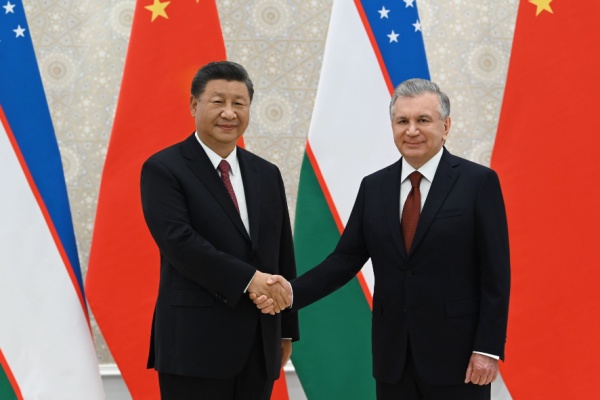
Russia’s Retreat and Counterattack in Central Asia
By Stephen Blank
May 9, 2024
Russian power is retreating from the Caucasus and Central Asia, most prominently with the withdrawal of Russian peacekeepers from Nagorno-Karabakh and Washington’s concurrent decision to open discussions with Yerevan on military support. The same process is discernible in Central Asia in the lukewarm support for the war in Ukraine and Kazakhstan’s critique of that war. Other harbingers of the trend are the gradual erosion of Russian language use and China’s dominance in regional finance, trade, and investment. Nevertheless, Moscow still deploys substantial leverage over Central Asia and individual states and can conduct purely domestic policies that negatively affect Central Asian governments and citizens. Moreover, recent indicators suggest that Russia is launching a campaign to restore its hegemonic position in Central Asia. Thus, despite the war in Ukraine and the burdens it has imposed, current Russian policies in Central Asia amount to a determined resistance to its equally observable retreat.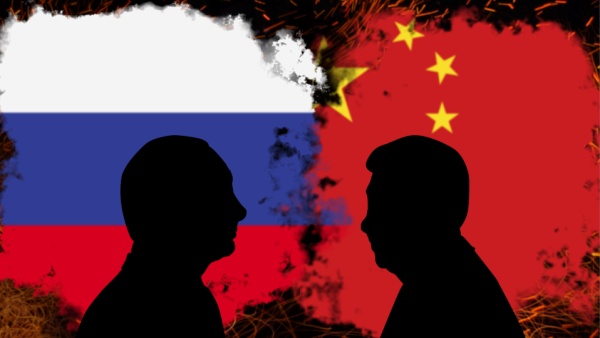
India-Pakistan Strategic Rivalry Extends to the South Caucasus
By Vali Kaleji
March 28, 2024
The development of military and defense relations between Azerbaijan and Pakistan and Armenia and India is an important consequence of the political arrangement and the balance of forces after the Second Karabakh War. However, Pakistan’s non-recognition of Israel has prevented Baku from forming a “quadruple alliance” with its three strategic allies, including Turkey, Israel and Pakistan. Armenia, after defeat in the war and amid dissatisfaction with its traditional ally Russia and the Collective Security Treaty Organization (CSTO), views India, France and Iran as new strategic options, however, Iran prefers Armenia to maintain its traditional and strategic relations with Russia. The tripartite cooperation between Armenia, Iran and India focus efforts on “soft balancing” (economic-transit) instead of “hard balancing” (military-security), against the tripartite ties of Azerbaijan, Turkey and Pakistan in the South Caucasus.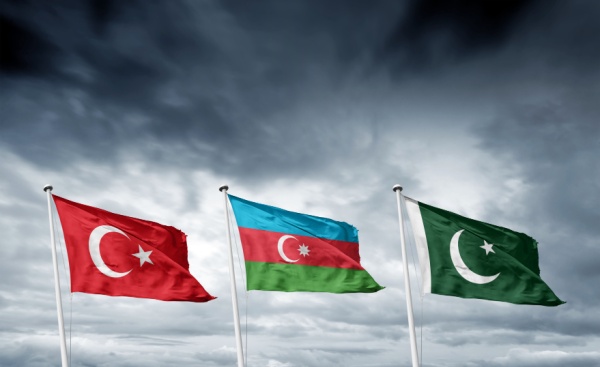
Two Years Later: Kazakhstan's January Events
By Svante E. Cornell
January 2, 2024
In January 2022, Kazakhstan experienced its most serious internal crisis since independence. Popular protests over energy costs turned into riots that in turn took on the shape of an attempted coup d’état that required President Tokayev to request support from the Collective Security Treaty Organization. Kazakhstan’s outlook appeared bleak. While some elements of the January events are still being investigated by the Kazakh law enforcement, the overall picture of what happened is clear. Overall, however, the events led to a gradual purge of older elements within the state institutions, a further distancing from Russia, and a redoubling of the overall reform process in the country.
Russia’s Menu of Manipulation in Kyrgyzstan
Johan Engvall
November 27, 2023
Kyrgyzstan is fertile soil for Russian manipulation. Institutional enmeshing with Russia, lack of alternative security protection, old and new economic linkages, and traditional values vulnerable to Russian propaganda have enabled Moscow to retain a firm grip on Kyrgyzstan. Meanwhile, Russia’s war in Ukraine has led to greater uncertainty. There are opportunities for Kyrgyzstan to diversify external relations, but also risks of new dependencies and greater insecurities vis-à-vis Russia.
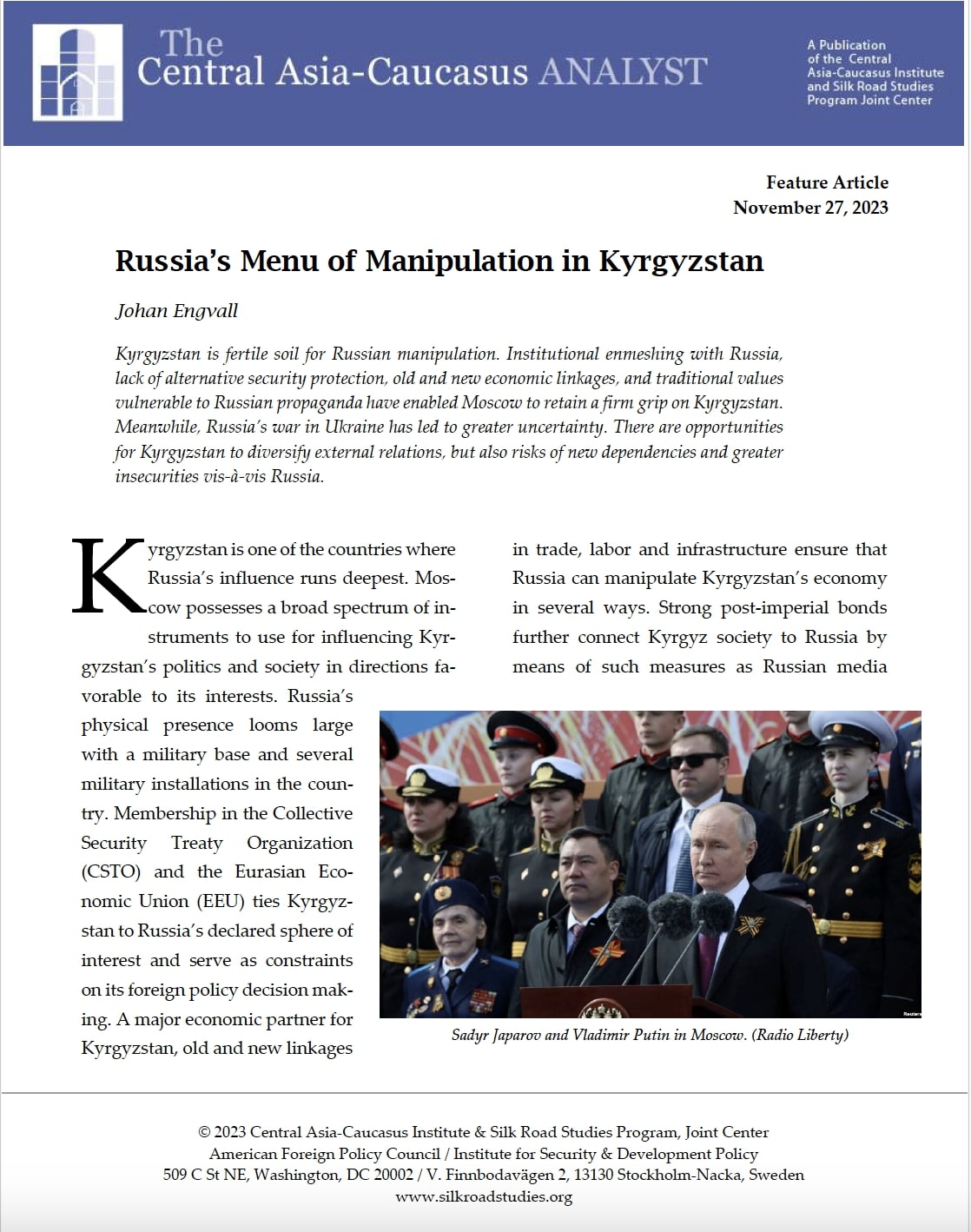
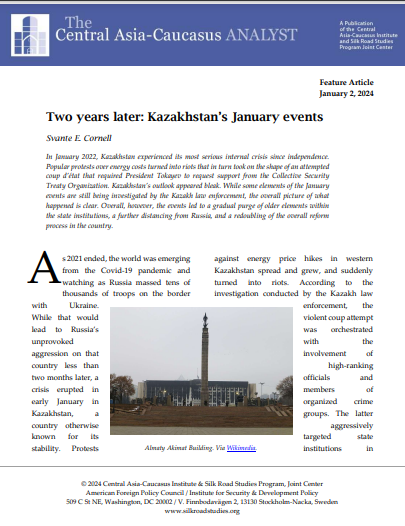





 Book S. Frederick Starr and Svante E. Cornell,
Book S. Frederick Starr and Svante E. Cornell,